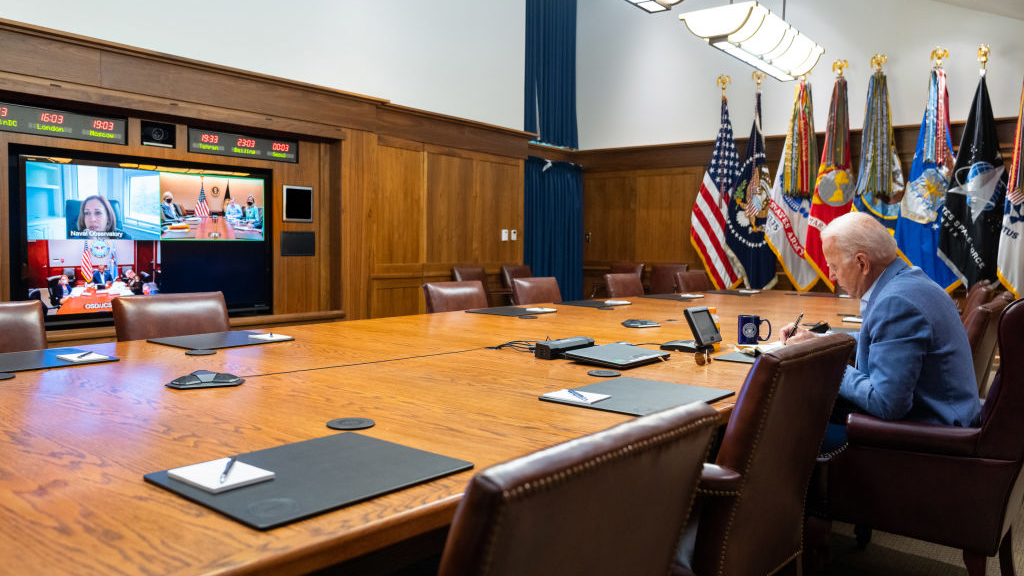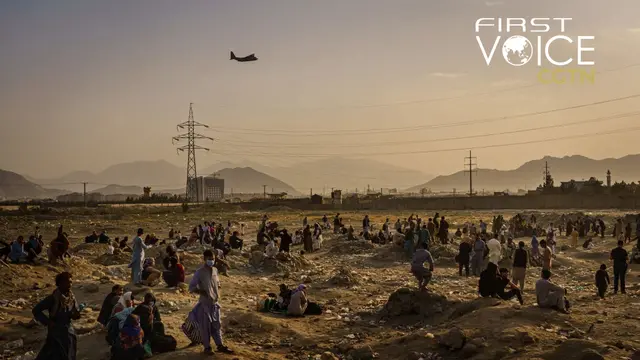The biggest fallacy outside in
For Americans, the Afghan mission was doomed from the start. It was a fool's errand to treat Afghanistan as a political laboratory. The country's difficult topography, ethnic complexity, and tribal incongruity would prove to defeat all outside efforts to change the inside.
Americans thought they knew better. An old Chinese proverb says, "Give a man a fish, and you feed him for a day. Teach a man to fish, and you feed him for a lifetime." But Americans got both the fish and the fishing wrong.
Here, the fish is the Afghan puppet government. American support could not be filtered through the complicated Afghan culture and trickle down to its people. Most support fell into the wrong hands. The Afghan government failed to deliver on governance because it was set up by the Americans, not the Afghans, from the very beginning.
But with any fish, there are parasites. The parasites flourish by feeding off the host, becoming both addicted and impotent as a result. According to John Sopko, the special inspector general for Afghanistan reconstruction, about 80 percent of Afghanistan's $11 billion budget was financed by the U.S. and other international donors, while Afghanistan's total estimated domestic revenue was only about $2.4 billion. The end result was an ineffective government that could not even resupply its own forces, let alone win public support.
This economic parasitism actually hurts both the host and the parasite. As the host, America suffered excruciating pain and bled until it finally had to leave. As the parasite, the Kabul government now loses its income flow and ability to earn on its own.
How did the Americans read everything so wrong?
U.S. intelligence predicted that the government in Kabul could hold on for months before a Taliban takeover. They also believed the Afghan army was a significant military force as if in any modern country. Both assumptions were wrong.

U.S. President Joe Biden at a video conference with the national security team to discuss the ongoing efforts to draw down the civilian footprint in Afghanistan at Camp David in Frederick County, Maryland, August 16, 2021. /Getty
The Afghan army would never defeat the Taliban, not because they can't put up a fight, but because they didn't want to. Afghans have a long history of mastering the math of war. They know who is winning, and they want to be on the winning side. The Afghan army was trained by the Americans, and they knew their military power was to serve a political purpose, nothing more. When America said, "You're on your own," that purpose disappeared.
But the bigger misread is about the country itself. Afghanistan has been struggling with its identity for centuries, and this civil war is just another reflection of such struggles. Who are the Afghans? A coalition of tribes, a pact between different ethnic groups or a Muslim emirate? During the modern era, the country faced threats first by the United Kingdom, followed by the Soviet Union, and then by the United States. When facing an outside enemy, the Afghan people somehow managed to build national cohesiveness to expel the foreign invader. But when the enemy is gone, what keeps the country together?
Don't be afraid of the Taliban yet!
Will the Taliban be the answer? The Taliban has shown it is invested in being different from 20 years ago. They were a divisive force back then, rejecting any differences. But now they say they are trying to unite. They realize that what happened last time would not be a winning strategy today.
Some may say that the beliefs espoused by the Taliban are crude and not acceptable to the West. But any community has its own beliefs, and they are the genuine beliefs of that particular indigenous people and therefore need to evolve organically. Afghans will obviously not mindlessly accept whatever America shoves down their throats or beams into their brains. The Taliban, as native to Afghanistan, must be given the benefit of the doubt. They must be given another try.
Taliban leader Mullah Haibatullah Akhundzada urges his fighters to treat conquered cities with a benevolent hand. However, they have not displayed an aptitude in managing the cities they've captured so far. They want to build an Islamic country ruled by Shariah Law, but they lack an appropriate model to emulate. The reconstruction of a war-torn, poor Muslim country will take time and patience.
They could start by being more moderate and inclusive. The Taliban has time on its side, and it could also usher in an era of reconciliation by soliciting help from inside and outside the country. Yes, there are still deep and wide political divides, but there is a chance for a balance of power among factions. And yes, outside powers are trying to influence the politics, but all stakeholders would reap benefits from a country free from economic collapse and humanitarian crisis.
Afghanistan is and always will be a mosaic of many different cultures, ethnicities and approaches to Islam. But are these differences a curse or a blessing? That depends on what the Taliban will do and how the rest of the world will react. But for now, we don't yet have answers to either of these questions.
(CGTN)
 简体中文
简体中文

